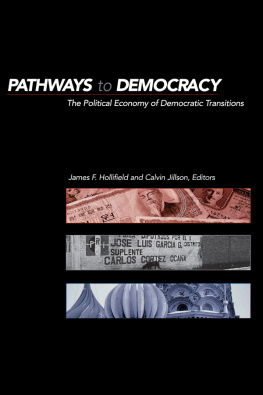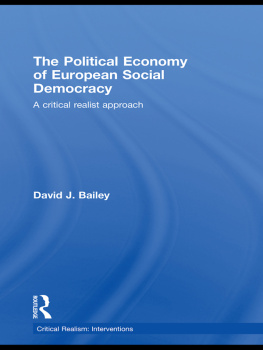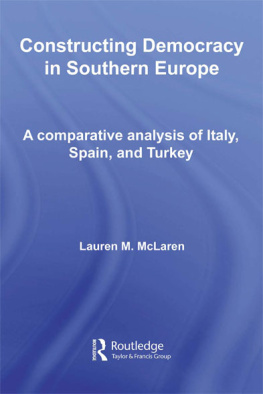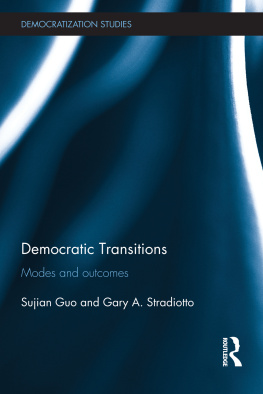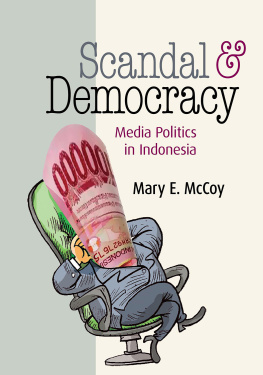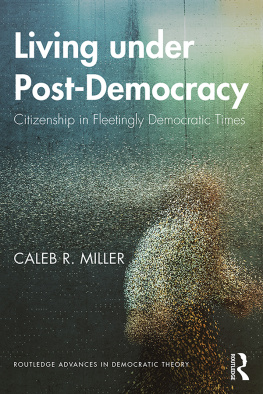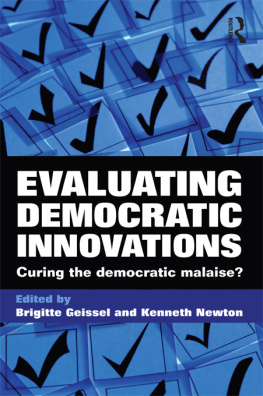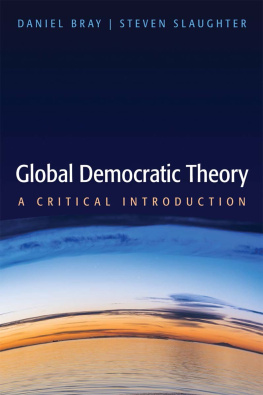Pathways to Democracy
Pathways to Democracy:
The Political Economy of Democratic Transitions
James F. Hollifield and Calvin Jillson, Editors
First Published 2000 by
Routledge
Published 2013 by Routledge
2 Park Square, Milton Park, Abingdon, Oxon 0X14 4RN
711 Third Avenue, New York, NY 10017, USA
Routledge is an imprint of the Taylor & Francis Group, an informa business
Copyright 2000 by Routledge
All rights reserved. No part of this book may be reprinted or reproduced or utililzed in any form or by any electronic, mechanical, or other means, now known or hereafter invented, including photocopying and recording or in any information storage or retrieval system, without permission in writing from the publishers.
Library of Congress Cataloging-in-Publication Data
Hollifield, James Frank, 1954-
Pathways to democracy : the political economy of democratic transitions / James F.
Hollifield and Calvin Jillson, editors,
p. cm.
Includes bibliographical references and index.
ISBN 0-415-92433-2 (hb.) - ISBN 0-415-92434-0 (pb.)
ISBN 978-0-415-92434-4 (pbk)
1. Democracy. 2. Democratization. I. Jillson, Calvin C., 1949- II Title
JC421 .H65 1999
320.9049-dc21
99-035009
Contents
Lucian W. Pye
William Glade
Stephen Macedo
Felipe Agero
Ruth Berins Collier
Arturo Valenzuela
Bruce Cumings
Gretchen Casper
Cal Clark
Steve Chan
Thomas F. Remington
Joseph S. Berliner
J. C. Sharman and Roger E. Kanet
Jeffrey Herbst
Peter M.Lewis
Ben Hunt
MARIAN TOWER AND her father, former senator John Goodwin Tower (R TX), were killed in a plane crash near New Brunswick, Georgia, on April 5, 1991. In the wake of that tragedy, Senator Tower's friends and family established the John G. Tower Center for Political Studies at Southern Methodist University (SMU) in Dallas, Texas. Senator Tower's two remaining daughters and their families, Mr. and Mrs. Berry Cox and Dr. and Mrs. David Cook, established the Marian Tower International Conference Series within the Tower Center.
The first Marian Tower International Conference was held at SMU on April 4 and 5, 1997. The title of the conference and of this volume, Pathways to Democracy: The Political Economy of Democratic Transitions, invites attention to the fact that within the worldwide shift toward democratic politics and free markets that occurred after 1979, different countries and regions of the world followed different paths from authoritarianism to some sort of more open or democratic society. Some began from military dictatorship, some from communism, and some from other types of authoritarian regimes. Most seem to have ended up with a more-or-less secure hold on democracy.
The question that motivates this volume is: What effect do both the starting point and the path taken from authoritarianism to democracy have on the character, shape, and feel of the democracy that results? Leading scholars and practitioners draw on their expertise and experience to address these questions in regard to Latin America, Africa, Asia, Eastern Europe, and Russia. What results is a fascinating study of the political, economic, and foreign policy opportunities and difficulties that confront nations attempting the difficult transition from authoritarianism to democracy.
A great many people contributed to the creation of this volume. We would like to thank the Board of Directors of the John G. Tower Center for Political Studies for their generous support of the Center faculty's scholarly activities. We would also like to thank the contributors to this volume for their cheerful and timely responses to our request. The staff of the Tower Center, the Political Science Department, and the International Studies program, especially Noelle McAlpine and Jane Sterling, were tireless in their preparation for and conduct of the conference and the manuscript preparation that followed. The professional staff of Routledge, directed by Acquisitions Editor Amy Shipper, were a pleasure to work with and have produced an excellent volume. Finally, we would like to thank several anonymous reviewers for their helpful comments and constructive criticism.
Introduction:
The Democratic TransformationsLessons and Prospects
IN THE LATE twentieth century, people are freer to govern themselves and to seek their own economic interests than ever before. Communism has collapsed and authoritarian regimes are on the defensive. With the occasional glaring exceptions, the world is at peacea liberal and democratic peace based not so much on the balance of power as upon the dual dynamic of markets and rights, supported by an interdependent system of liberal states and a variety of international organizations and institutions. Markets have expanded both domestically and internationally, stimulated by the revolution in information technologies and supported by a highly integrated system of international trade and finance. Exchange of goods, services, capital, people, and ideas has increased across the board, and the wealth of nations is more than ever tied to capital and to a complex international division of labor. Yet many worry that economic tribulations in Asia, Russia, and Latin America might weaken or even threaten these nascent democracies.
As we approach the end of the millennium, trends in world politics and economics give us cause for optimism and concern. While the latter half of the twentieth century has surely been characterized by impressive gains for democratic politics and free markets around the world, these gains are insecure. To get beyond broad generalizations about the triumph of markets and democracy (here defined as the ability of people to choose or change their government)
Even though recent transitions to democracy have had a profound impact on world politics, this is not the first democratic transformation, and hopefully it will not be the last. In some sense, the recent transitions are but the latest chapter in the history of the Enlightenment; and we can see many of the themes of the eighteenth and nineteenth centuries (rationalism, liberalism, and humanitarianism) repeating themselves. To discover what is different about the most recent democratic transformation, we must look back at earlier episodes of democratization with an eye to understanding how our thinking about political and economic development has changed. We must also compare and explore the pathways to democracy taken by the newly democratic states.
We assume that the latest democratic transformation, like earlier ones, has its origins primarily in politics (changing relations of authority) and economics (changing relations of exchange). The common features of this transformation emerge clearly from the case studies in this volume. They are (1) a renewed emphasis on the rights of individuals, which find their most basic expression in free and fair elections; (2) free markets, which require competition, the rule of law, and a free flow of information; and (3) the resurgence of civil society (a dynamic realm of associations and groups that are autonomous from the state) in various parts of the globe. But if we look back in time, we see two failures of modernization in the 1930s and 1960s, which led to the breakdown of democracies. Here we review the first two waves of democratization to glean some lessons from earlier failures of modernization and to gain a better understanding of the current transformation.


